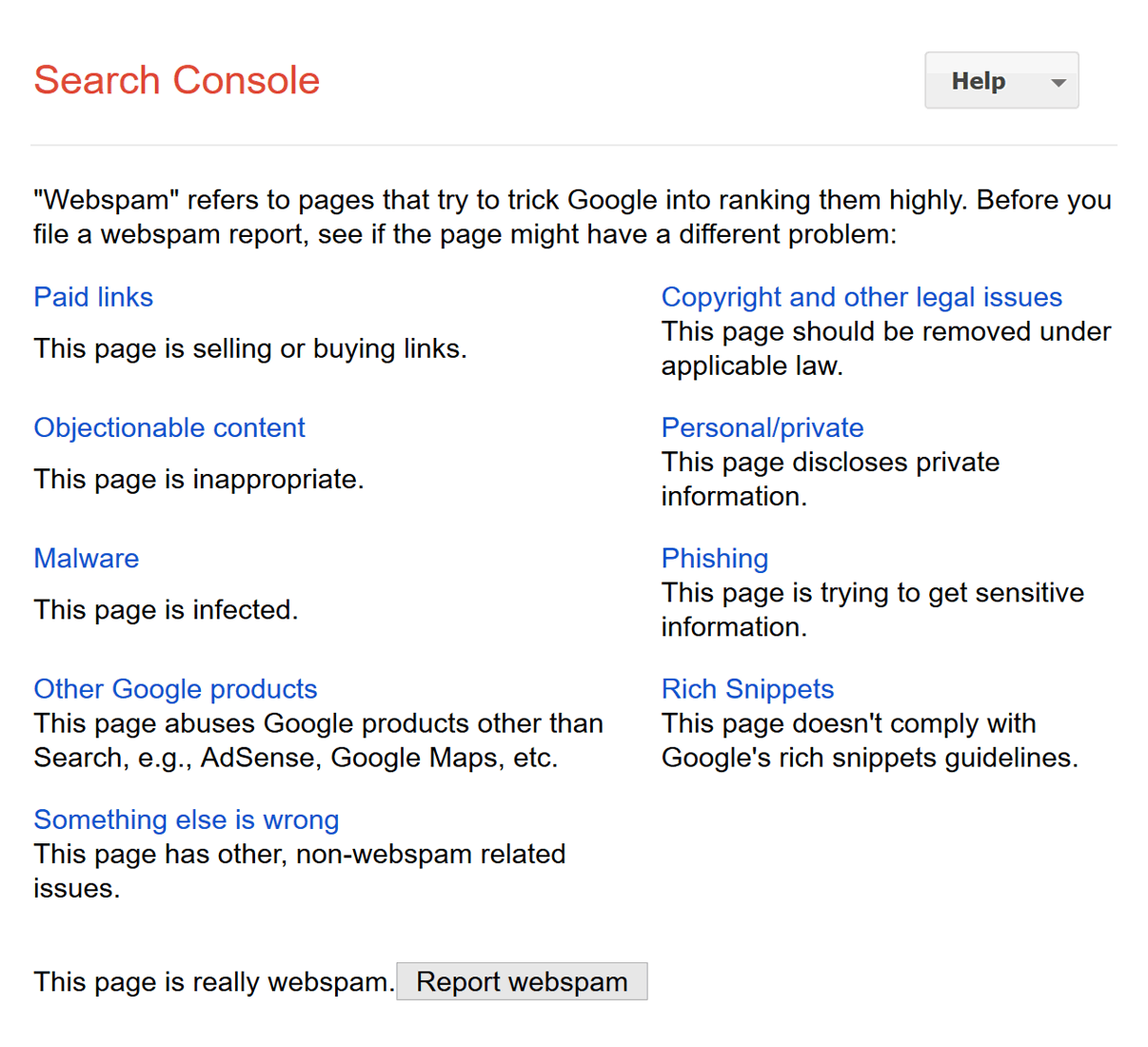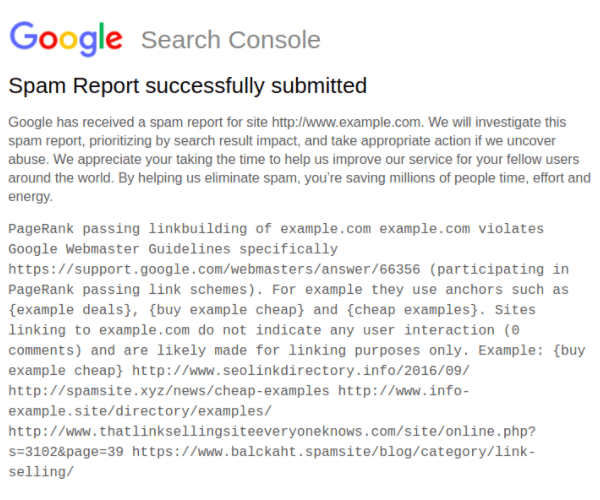On the web, you need to compete with others on the same niche and be successful to thrive. However, while some play a fair game, some others don't.
You may have created a compelling post by thorough research; spent time and resources to just make the article possible. You may have even interviewed others and worked tirelessly on it. If you think your hard work's result is well worth your effort, that's a good thing.
But to some people, they may see that their competitors are having similar posts that have much better results, but minus the hard work. And this can be irritating.
Read: How Google Search Works, And How It Can Show You The Things You Want
You may want to do research on your competitor to know why they succeeded. If they did nothing wrong, that's good for them, and you may as well work harder. This jealousy should keep you motivated so you can create a much better post in the future.
But if your competitor: deceives users, creates contents-lean pages with rich keywords but have no meaning and unreadable, infected by malware, artificially inflating on-page signals, low-quality content landing pages on a large scale, having false or deceptive structured data, having auto-generated thin content, tricking search engine using black hat techniques, blatantly copies others' work and claims it as their own, you know that they are violating Google's Webmaster Guidelines.
If you see that their doing at least one of the above, you may want to submit a spam report to Google so the search engine will alert them of the violation.
But the thing is, the web has grown a lot bigger for any single company to understand. Even for the size of Google and its experience over the years, and even by using sophisticated AI to do some of the labor, the company still needs some manual human intervention. As a result, many have slipped under Google's radar.
If you want Google's attention, here are some of the ways to do it:

Make Actionable Report
On Google's side, spam process involves manual work. If someone sends a spam report, an experienced Google employee will read the report, and then evaluate the violation.
Here, you need to detail the spam, making it actionable. As a company, Google's employees won't be looking at your report the whole day, so make your request respect their time, too.
You can describe, for example, why your competitor's website needs Google's attention by listing queries which it may be ranking high but proven not useful for users. In short, you need to provide as much information as needed, based on facts and not just your opinion.
You should also clearly define the violation your competitor has made.
To make your report actionable, you're required to refer to Google Webmaster Guidelines in order to demonstrate your in-depth investigation.
Provide The Necessary Details
Every violation you want to report, must be supported by facts and replicable examples. For example, it needs to include URLs of the pages, the anchor text with the landing page, and so forth. The more you can provide examples, the better.
Using examples, Google can process your spam report easier. Here, you're helping Google in identifying the violation, making them faster to process your request.
Clear And Concise
No actionable spam report should be sent without sufficient information or relevance.
What's your report? Why do you want to report it? What's your motivation in submitting the report? With the exception of a friendly greeting, and accurate description, you need to also mention your intention.
Google Search’s primary goal is to maintain high user satisfaction. So if you're submitting your report based on personal opinion, detest or hate, Google won't like it. Don't include things that are not necessary because you will just waste Google's time. What's more, those extra information won't increase the change for a penalty to be given to your competitor.
In short, you need to make your spam report actionable, relevant, specific and replicable.
Know Which Violation To Report
Google has detailed the violations on its Webmaster Guidelines. If your competitor has done any violation, they can indeed get the penalty they deserve. However, if your competitor has done multiple violations, you may need to know which of the violations are likely to be acted on than others.
For instance, black hat SEO than increased your competitor's PageRank is one of the most common violation people do. And this violation tends to trigger more violations that require Google to do an in-depth investigation before taking visible action.
The harder a violation is in affecting Google, the more likely Google will take your report seriously. So here, you need to know which violation to report to get the best result.
Know What To Expect

Your expectation may be high, hoping that Google will put a heavy penalty on your competitor. But here, you need to know the possible outcome of you submitting the spam report.
Know that your spam report will not affect you competitor in a hard way. Instead, even if Google processes your report, the chances are Google will apply manual spam action, which means that it will only put a temporary setback to your competitor's website.
Being penalized, your competitor will be given another change to fix the issue and obey Google's Webmaster Guidelines. Once your competitor has addressed the issue, Google may remove any manual action applied, and things will go back as it is.
But if the violation is a very serious one, depending on the technique used that resulted the penalty, affected websites may or may not recover from Google's anger. They will have their rank plummets, resulting in less search engine result page (SERP) visibility, even after successful reinclusion by Google.
What's more, organic search visibility is not constant and depends on many factors. So even if your competitor has been affected, changes in algorithms may make the penalty to eventually time out. And also if your competitor knows how to boost visibility, like for example, doing thorough but effective internet marketing, able to design website that loads very fast or having a great social media strategy, their decreased visibility will only be temporary.
And for last, always remember that if you can send Google a spam report, so can your competitor. To avoid this, you need to always follow Google's Webmaster Guidelines, keep a clean SEO strategy and never do anything to inflate signals.
Competition is fierce out there. Playing safe is the best thing you can do to avoid long-term damage.